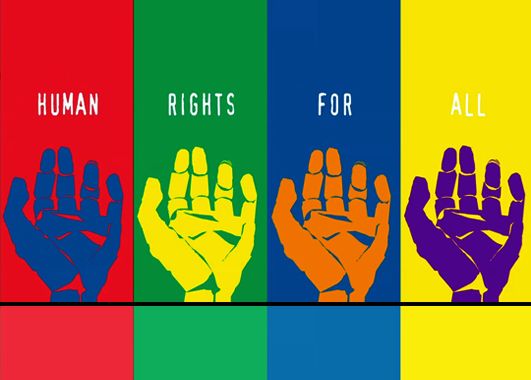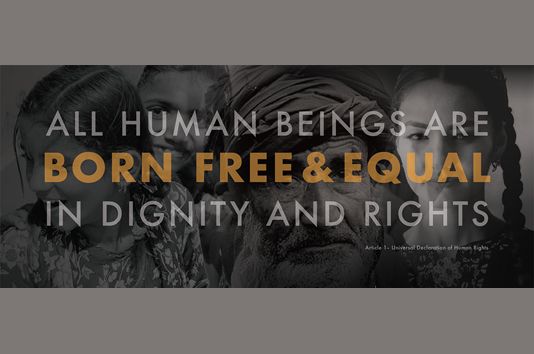Human Rights
Jun 06, 2019 • 35 views

Harold Laski, one of the prominent political thinker of 20th century said,
“ Rights are in fact, those conditions of social life which no man can seek in general to be himself at his best. “
India is a land of diverse culture, traditions, religions, races etc. But even after so many years of independence, violation of rights still exists in nation. That’s why, the policy makers had formulated various rights to safeguard the interest of citizens of the country.
DEFINITION
Human rights refers to the certain basic & fundamental rights which are universal for humanity & granted to each person of our society at par. Human rights are those conditions of life & freedoms which should be available to all persons, irrespective of their religion, caste, sex, nationality or any of them. Human rights was first formulated on December 10,1948 in United Nation’s Universal Declaration of Human Rights.
Human Rights are inalienable and indivisible. Human rights ensures a vision of free, just and peaceful world. These can be broadly classified as Political rights, Social rights & Cultural rights. Among many rights, one is right to education. The government has initiated many schemes like Beti Bachao, Beti Padhao, Mid-day meal etc., but still sensitisation is required alongwith proper implementation.
Political rights enables everyone to take part in government decision making by choosing representatives. Also, an intelligent choice should be made by then irrespective of consideration of race, religion, creed or colour. Everyone has a right to vote, which was earlier denied to women but due to protests was granted later on. Everyone has the right to own property and social security. MNREGA, JRY are some of euros taken by government to ensure employment to all, and thereby, equality. Proper lifestyle with basic amenities is also one of the basic rights of every citizen. Men and women both are entitled to marry anyone of their preference & choice. Women should be treated at par with men. This is regarded associal right. In Afghanistan, women were treated as cattle. In India, child marriage still prevails. Right to life, right to freedom from slavery, torture etc. are being provided. Right to freedom from arbitrary interference with privacy is also granted.
National Human Rights Commission (NHRC) of India is responsible for protection and promotion of human rights. NHRC was instituted in the year 1993 and it inquire into the complaints of violation of human rights, review acts of terrorism & also it promotes research in this field. Recently, the practice of ' triple talaq' has been prohibited by the supreme court. This act is to ensure protection to women against the prevailing practices in the society. In Maharashtra, a journalist was charged for spying against government officials. Is this freedom of expression we are talking about?
Off course not! Media is regarded as fourth pillar of democracy and it should be free from any political interference as it is a human right to freely express one’s opinions and thoughts. Many NGOs are also working in this regard to ensure that human rights are adhered to. Amnesty International is one such organisation aimed at bringing the problem of prisoners to forefront.
India’s position in this regard has improved so far but yet a lot needs to be done to ensure that people are not exploited and the very purpose of human rights to protect individuals is accomplished.
Human rights are formulated as,
“ Every men is born free but he is in chains everywhere."

